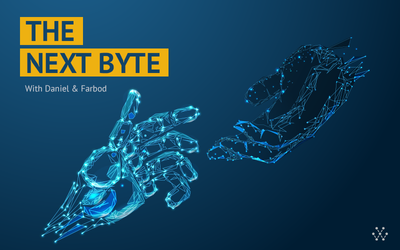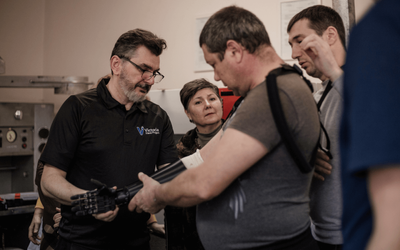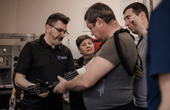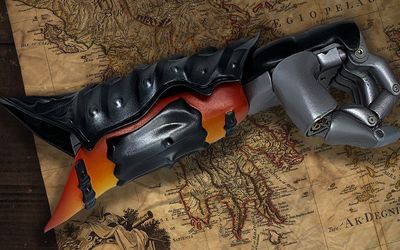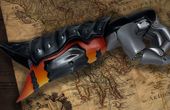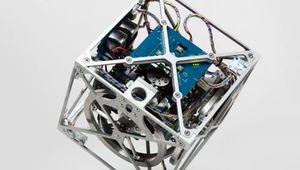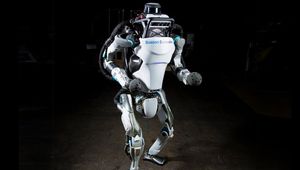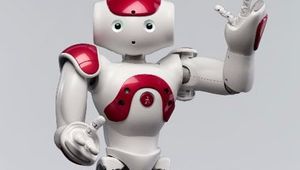A 3D Printed Weightlifting Prosthesis for Amputee
An inspirational story of Reddit users joining hands to create a prosthetic arm for a weightlifting amputee.
Overview
HACKberry-Inspired Design for Prosthesis
HACKberry is an open-source 3D printable prosthesis developed by an arm prosthesis specialist Japanese company called Exii Inc. It's a myoelectric prosthesis that allows amputees to carry out their daily activities quickly.
The proposed 3D-printed prosthesis consisted of a custom design that should be lightweight, strong, and durable. Eventually, the prosthesis developer Cameron Norris decided to work with RepRapper Tech's new aluminum-filled PLA that consisted of nearly 30%.
What is Myoelectric Prosthesis?
A myoelectric prosthesis is based on a microprocessor or a computerized system that processes myoelectric signals from the brain. The system is installed within the prosthesis, enabling it to control the limb movements such as opening and closing a fist, extending and bending the elbow, etc.
Typically, users must train with myoelectric prostheses to gain control and activate the limbs through muscle contraction and expansion. The idea is to make the limbs as intuitive as possible.
Compared to other prosthetic limbs, myoelectric limbs provide more control, stability, and dexterity to the users, enhancing the users' functional capabilities. Typically, there are sensors inside the prosthesis to evaluate pressure, touch and enhance environmental interaction.
Integration of Medical Experts Boost Prosthesis Development Phase
Mr. Norris was soon joined by Ms. Neela Janakiramanan, an Australian hand surgeon with experience in prosthetics and their limitations for hand surgeons. The duo worked on customizing and upgrading HACKberry as the world's first open-source medical-grade prosthesis, allowing anyone to recreate the arm anywhere.
First Prototype and the Immediate Design Change
Eventually, Norris developed the prototype from plastic, and was ready for testing. However, the same week, doctors decided not to amputate the whole hand. Instead, a partial amputation was planned, meaning that Norris' design would no longer be compatible.
Immediately, it forced a design change forcing Norris to 3D print a new design with different specifications.
Reddit Users Joined Hands for a New Prosthesis Design
Immediately after the failure of the prototype, Norris posted on Reddit to seek solutions for a new prosthesis design. Several Reddit users came up with profound knowledge on the subject. Those worth mentioning include the following:
Andrew Sourk - Volunteered to share in-depth knowledge on Carbon fiber and Kevlar molding
Maxwell Emerald - Contributed with deep knowledge of 3D printing and design in mechanical engineering
Matt Miller - Came up with the idea of selective laser sintering.
David Worley - An amputee and prosthetic limb user for more than 15 years, shares his experience.
Among all contributors, David had a significant impact as he had lost both upper limbs in an accident. Being an experienced user, he shared valuable input throughout the project enabling the team to create a good product for Ryan.
Dedicated Prosthesis for Weightlifting and Workouts
Besides developing a primary myoelectric prosthesis, the team also aims to develop a low-cost prosthesis to help Ryan work out. The dedicated workout prosthesis will be made from Kevlar and Carbon fiber to provide extra strength and mobility.
The Kevlar thread is a solid material. It's more efficient than a steel cord. A size #800 Kevlar thread can bear up to 200 pounds and has a 1.1 mm diameter.
The proposed weightlifting prosthesis would feature a digital rep counter that integrates with a smartphone via Bluetooth and displays the performance on the mobile screen.
The idea is to create a hand-operated prosthesis similar to the i-limb digits but at a much lower cost.
References
Tags
3D Printingprostheticsrobotics